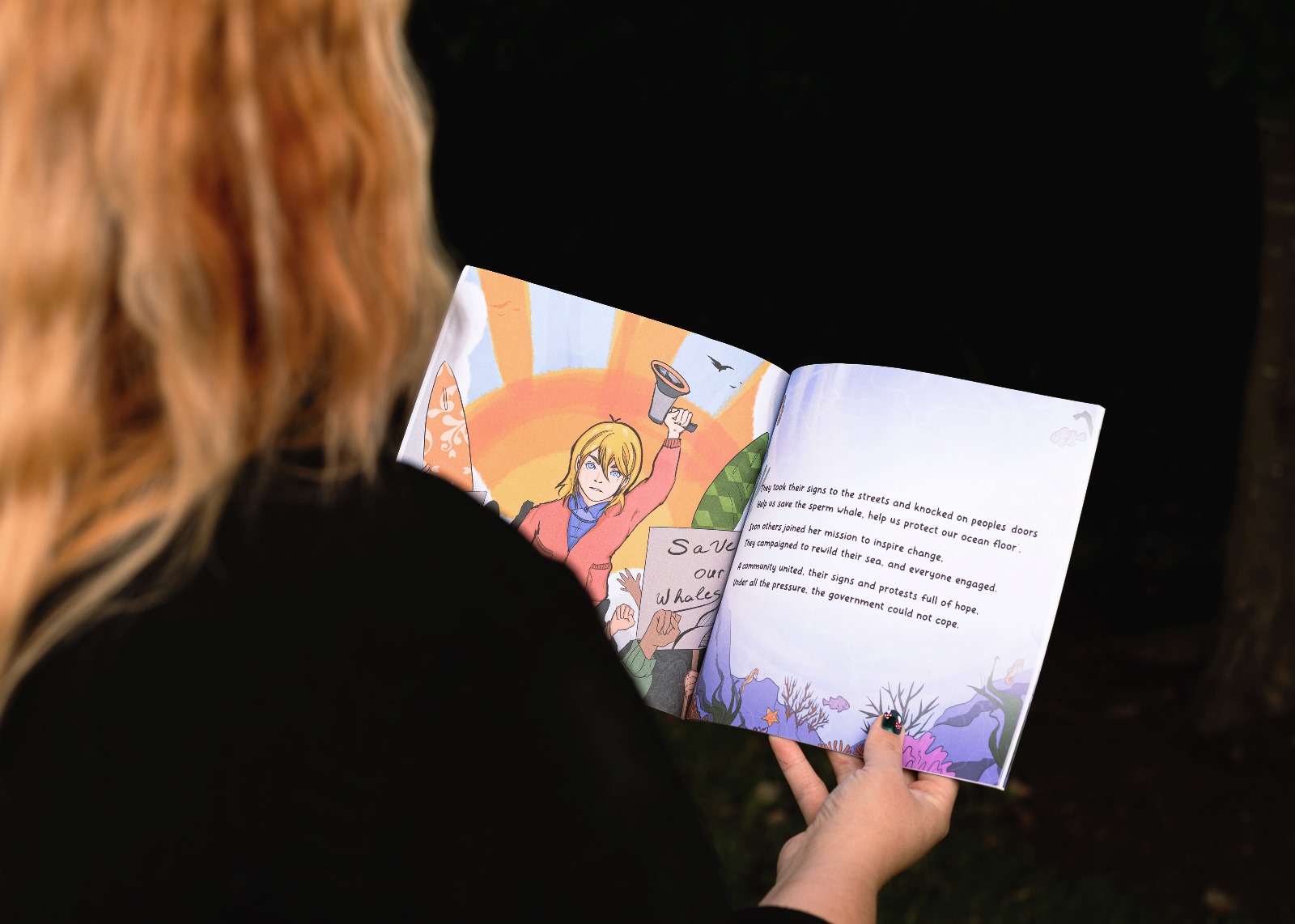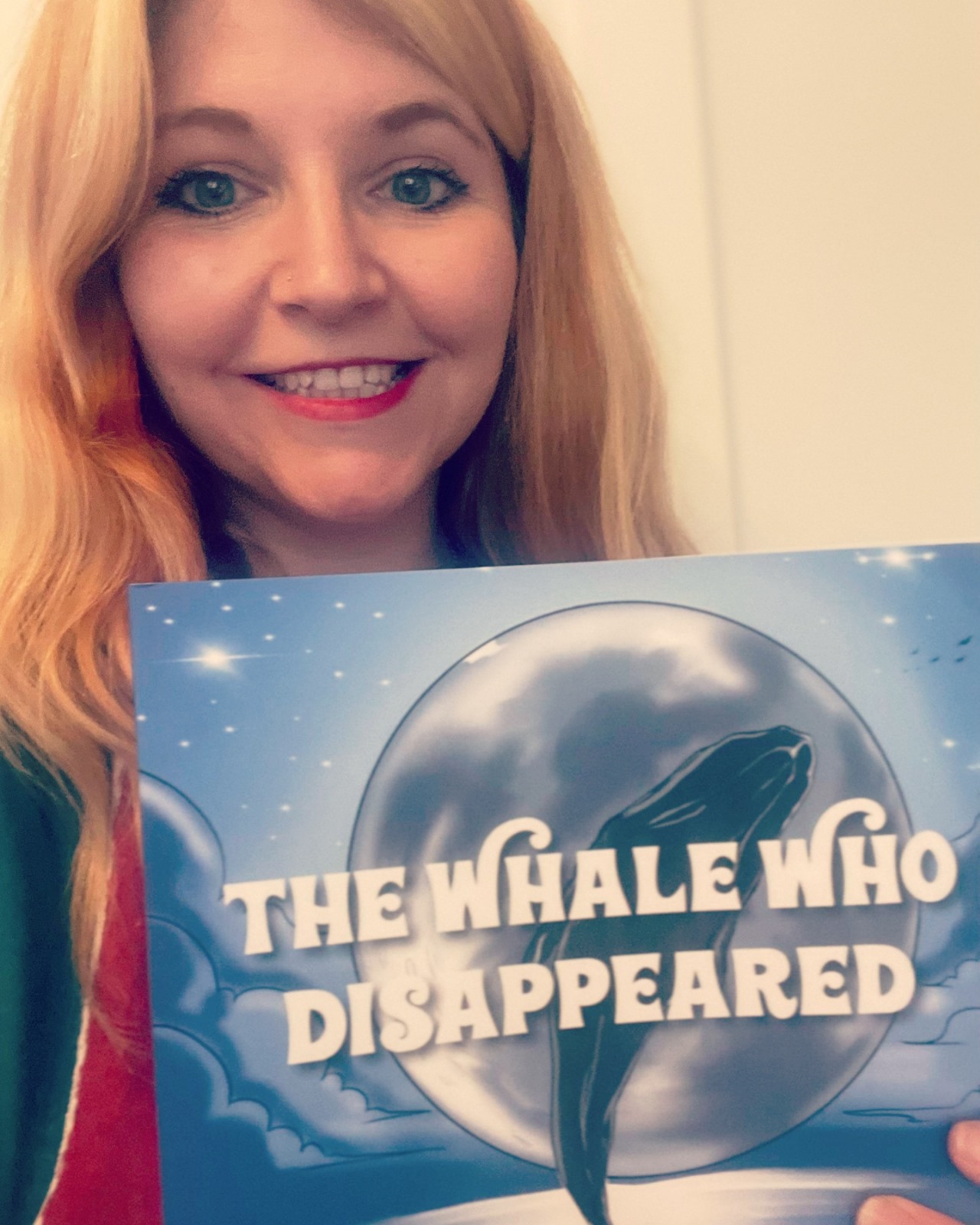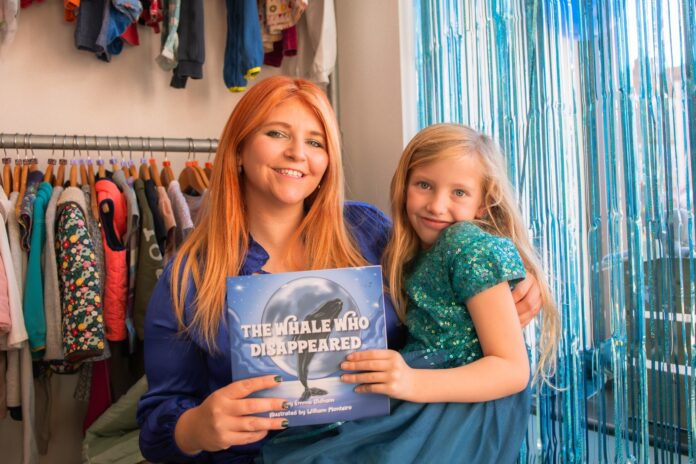The catalyst for The Whale Who Disappeared emerged from a single, powerful tweet. Its portrayal of a solitary whale encircled by a tumultuous sea of boat traffic left an indelible mark on my consciousness. This haunting image vividly illustrated the consequences of human activity on our marine ecosystems. It was a call to action, urging me to reimagine the narrative and infuse it with hope and empowerment.
As a parent navigating the joys and challenges of raising twins and a toddler, I sought solace in storytelling during sleep-deprived nights. The experience of motherhood, coupled with my deep concern for the future of our planet, fuelled my determination to create a narrative that empowers children to enact positive change.
A new generation of environmental stewards
In The Whale Who Disappeared, I endeavoured to weave together the enchantment of imagination with the stark reality of environmental threats. Through the protagonist, Arry, and her quest to save the whale, young readers are encouraged to recognise their own agency and potential for making a difference. By normalising themes of conservation and activism, the story aims to cultivate a new generation of environmental stewards, equipped with the knowledge and resolve to safeguard our planet for generations to come.
I believe that children possess a natural curiosity and empathy towards the world around them, making them ideal agents of change. By introducing them to concepts such as rewilding, conservation, and the power of collective action at an early age, I hope to instil a sense of responsibility and agency in safeguarding the planet for future generations.
Being part of the solution
The story follows six-year-old Arry, who lives by the sea but feels something is missing. When Arry learns how the oceans used to be — unspoiled and teeming with life — she starts a campaign to save the seas. This uplifting story, inspired by the work of Rewilding Britain and the charity COAST on the Isle of Arran, shows how determined action, even from the very young, can unite communities and help save the planet.

With eco-anxiety on the rise, especially among younger generations, I wanted to create a story where children can see themselves as part of the solution. Every child has the power to make our planet better, and this book shows them how to use it.
Addressing eco-anxiety
Addressing eco-anxiety and promoting positive action in children’s literature is crucial, especially in today’s context where environmental issues are increasingly urgent and pervasive. Young people are growing up in a world where they are constantly exposed to alarming news about climate change, species extinction, and environmental degradation. This exposure can lead to feelings of helplessness and anxiety. I know this feeling far too well and can recall eco-anxiety impacting my life from as young as six years old.
By addressing eco-anxiety in literature, we help children understand and process these feelings healthily, fostering emotional resilience.
Taking positive action
Educating children about the reality of environmental challenges ensures they are well-informed. This awareness is the first step toward fostering a generation that is conscious of the issues and motivated to seek solutions. Stories like The Whale Who Disappeared provide a balanced narrative that acknowledges the gravity of the situation without overwhelming young minds. Showing that a young protagonist like Arry can make a significant impact instils the belief that they, too, have the power to effect change. This sense of agency is vital in combating feelings of helplessness and promoting proactive behaviour.
By highlighting community efforts, such as the work of COAST in the story, children learn the importance of collaboration in tackling large-scale issues. This teaches them that collective action is powerful and that they are not alone in their efforts to protect the environment. Early exposure to environmental themes encourages the development of sustainable habits. Children who grow up reading about conservation and nature protection are more likely to adopt eco-friendly practices in their daily lives, such as recycling, reducing waste and conserving water.

Positive action stories help integrate environmental values into a child’s identity. When these values are internalized from a young age, they are more likely to carry them into adulthood, influencing their decisions and behaviours long-term. By inspiring children to care about and take action for the environment, we are nurturing the next generation of leaders who will continue to advocate for and implement environmental protection measures. These leaders will be equipped with the knowledge, passion and skills needed to drive significant changes in policy and societal behaviour.
How I got here
I’ve always grown up with a notepad in one hand and some form of wildlife in the hand, so it was inevitable one day, I would fuse these. During my time at university, studying Conservation Biology, I was fortunate to land an internship in environmental journalism. I got to interview some incredibly captivating people including Dr Jane Goodall, Bill McKibben and Zoe Palmer.
After graduating, I spent some time in the field zoning in on my practical conservation skills such as plant and insect surveying, bird ringing, footpath laying and removing invasive species. But my pen kept calling me.
I applied for a communications role at the Royal Society of The Wildlife Trusts and have spent the last decade helping wildlife and nature NGOs communicate their stories and inspire people to take action – from Rewilding Britain to Eco Kids Planet Magazine to the Connected Conservation Foundation.
Within these roles, I spent a lot of time creating content for children. I always knew I wanted to write children’s nature stories, I was just waiting for the right story to come.

Hopes for the future
My hopes for the book is to help children identify themselves as the heroes of their future and for the planet. They don’t need to wait for others to take action, or be lost to anxiety or hopelessness of lack of action by others, but to feel inspired and empowered to use their voices, questioning and skills to push for a wilder, healthier planet.
Emma Oldham is a conservation biologist, public speaker, accomplished author and local councillor. Her unwavering commitment to environmental causes has earned her national recognition, including the prestigious Women of the Future Award in the Community Spirit category in 2023 and 2024 ENDS Power List – UK’s Top 50 Political Change Makers.
The Whale Who Disappeared is published by Fisher King Publishing and is available to buy at Waterstones and Amazon.
